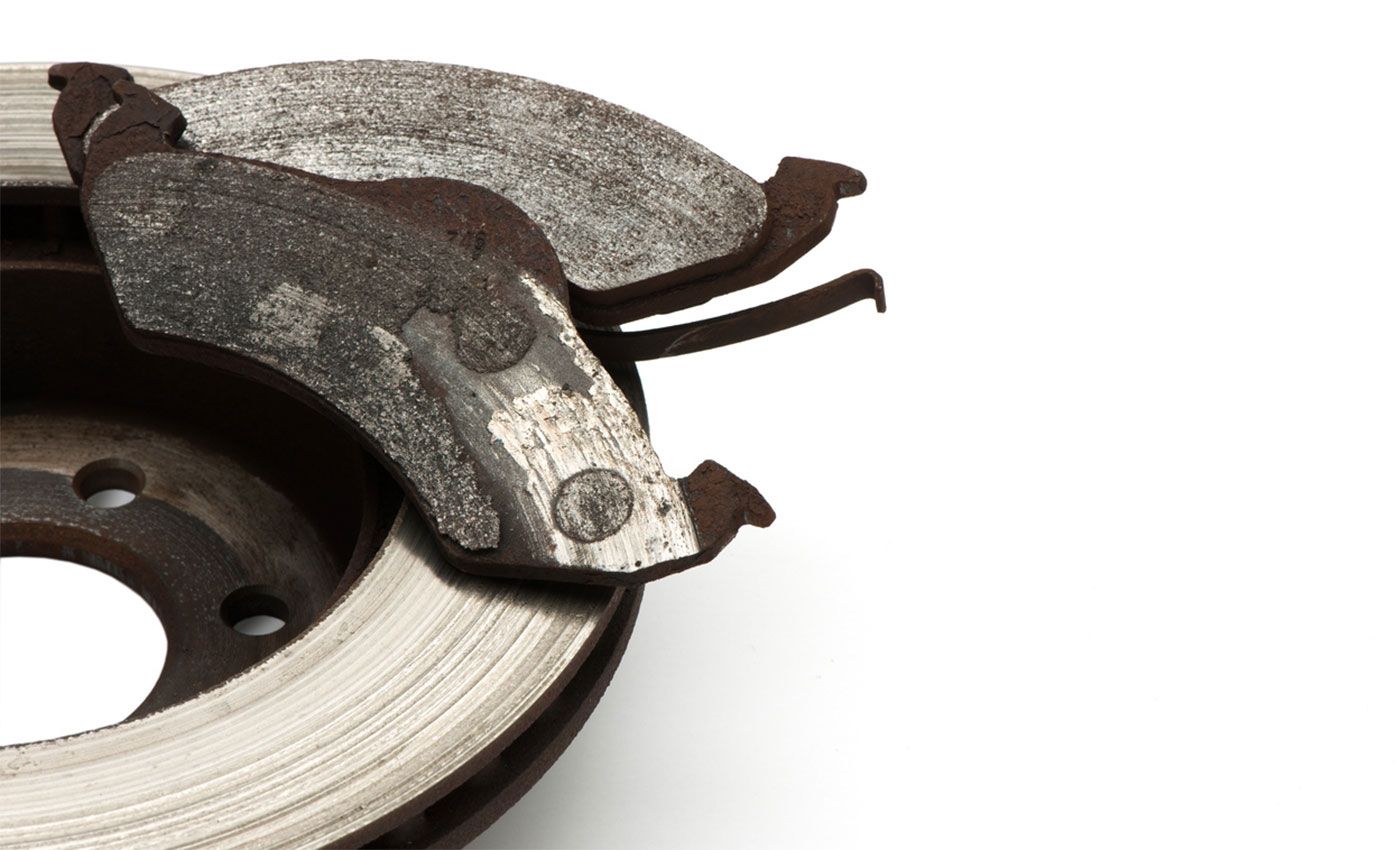
All or One: Should You Replace All Brake Pads At Once?
Can you replace just one set of brake pads? Answer that question and more as you learn why braking system maintenance is crucial for safety and performance.
Read More
Brake fluid service involves the testing and exchange of the liquid contained within the closed hydraulic brake system on a vehicle. The basic purpose of brake fluid is to transfer the movement of the brake pedal through various components or systems to actuate the brake pads at the wheels hence stopping the vehicle.
Several conditions can occur that may cause problems with the brake fluid in a vehicle. The most common is the depletion of the additive package of the brake fluid. This can lead to deposits on critical metal brake components including those that are part of the ABS hydraulic control system. Other conditions can be moisture content and non-brake fluid contamination such as power steering system fluid.
At Firestone Complete Auto Care, brake fluid can be quickly and accurately tested in vehicles simply by removing the master cylinder cover and inserting the end of a Brake Fluid Test Strip into the fluid. We then remove the test strip and wait approximately sixty seconds. The end of the strip will change colors indicating the PPM (parts per million) of copper of the brake fluid in the system. The copper PPM content of brake fluid is an accurate and predictable means of determining the condition of the additive package of the brake fluid. By comparing the color of the end of the test strip to the provided chart we can accurately determine the PPM of the copper content of the brake fluid and determine if a brake fluid exchange is recommended.
The reason we test brake fluid is to determine the condition of the additive package of the fluid. As the additive package is depleted corrosion is usually the result and when the copper content of the brake fluid is over 200 PPM the depletion and corrosion is occurring at an accelerated rate. This is why we test brake fluid. To prevent internal corrosion and other problems such as sludge build up that can impact the performance of your braking system.
It's really all about the additive package contained within brake fluid that is revealed during testing that determines the need for brake fluid exchange service. Unless petroleum contamination is present, fluid should not be judged by its physical appearance. Just because it appears dark or not as clear as when it was new doesn't mean that brake fluid replacement service is needed. It is the break down or depletion of the additive package contained within the fluid that dictates if brake fluid exchange service is recommended or not.
The internal components of a brake system including the internal components of the ABS Brake system can be affected when the copper content of the brake fluid rises above 200 PPM. While the copper content itself doesn't cause any immediate issues, it is the indicator used to judge the depletion of the additive package. One of the prime purposes of the additive package is to protect the internal metal parts (the parts in contact with the brake fluid) of the brake system from corrosion. Of particular concern are the sensitive Antilock Brake System (ABS) components. High levels of corrosion could cause the ABS to fail during an emergency stop.
Firestone Complete Auto Care performs a brake fluid exchange, not simply a brake fluid replacement, if any service is needed. This assures that the highest percentage of old fluid as possible is removed and replaced with new fresh fluid. The exchange will be performed per the equipment manufacturer's recommended procedures. We also retest after our brake fluid exchange service is performed and show you the re-test results as indicated on the test strip. Get your brake fluid tested today at Firestone Complete Auto Care to make sure your brake system is protected.

Can you replace just one set of brake pads? Answer that question and more as you learn why braking system maintenance is crucial for safety and performance.

It’s terrifying when your brakes lock up. Learn the potential causes of brakes locking up while driving, how to prevent it in the future, and how to react when they do.

Brakes not slowing you down as they used to? Don’t let the unthinkable happen! Discover the common causes of brake lag, their symptoms, and how to resolve them!